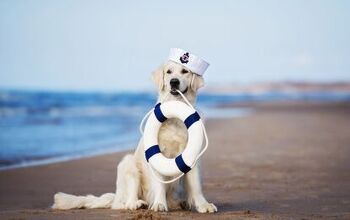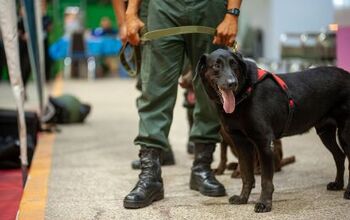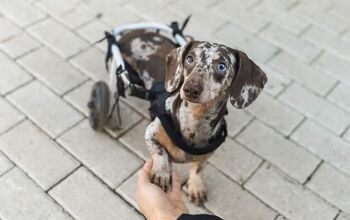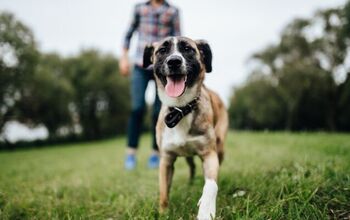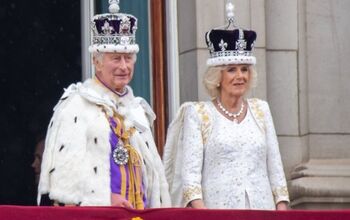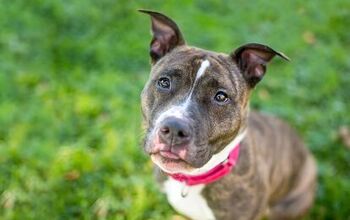American Red Cross Pet Therapy Dogs Visit the Navy

The American Red Cross just launched its new Animal Visitation Program in Charleston, SC and patients and families at Naval Health Clinic Charleston (NHCC) couldn’t be more delighted! The five therapy dogs–Jazz, Gonzo, Joey, Charlie Charizard, and Little Charlie–along with their Red Cross Volunteer handlers, visit the NHCC weekly and give patients some furry love.
Related: Canine Heroes Help US Veterans with Brain Injuries
NHCC’S public health services director, Navy CDR Amy Smith, says the dogs are a wonderful addition to the NHCC family, and their patients are genuinely happy to have the opportunity to engage with and interact with them. CDR. Smith coordinated the program for the clinic, and NHCC Commanding Officer Navy Captain Elizabeth Maley said that the naval staff gets as much from the program as she believes her patients and visitors do!
To be allowed in the naval clinic, they have to undergo special grooming and training to learn how to behave. Each dog also has an innate ability to identify those who need attention and to allow that person some one-on-one interaction. Jazz’s handler Pam Diehl said the dogs just seem to know who needs them. Jazz is a three-year-old Newfoundland who was certified as a therapy dog when she was just nine-months-old. Originally, it was to be a companion for Diehl’s mother, who was hospitalized at the time, but she was so good with it and other patients as well. Diehl says that Jazz was born to do what she does.
Related: Therapy Dogs Help Children With Autism More Than We Thought
Patients seem ever so grateful for their work. Navy spouse Nichole Robinette said that her son’s eyes lit up when he saw one of the therapy dogs, even though he was gravely ill. She was thankful to see him act a bit like himself around the pups.
Seven-year-old Gonzo’s handler Erin Belcher said that the dogs get just as much from the patients and their appreciation. Belcher said that the dogs seem to just know they are a part of the patients’ paths of recovery.
It turns out laughter and dogs are the best medicine!

More by Lori Ennis



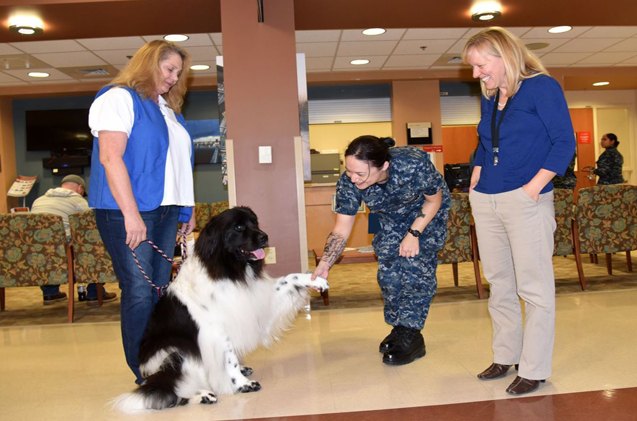


![Dog-Cam Shows a Day in The Life Of a Therapy Dog [Video]](https://cdn-fastly.petguide.com/media/2022/02/16/8226248/dog-cam-shows-a-day-in-the-life-of-a-therapy-dog-video.jpg?size=350x220)
